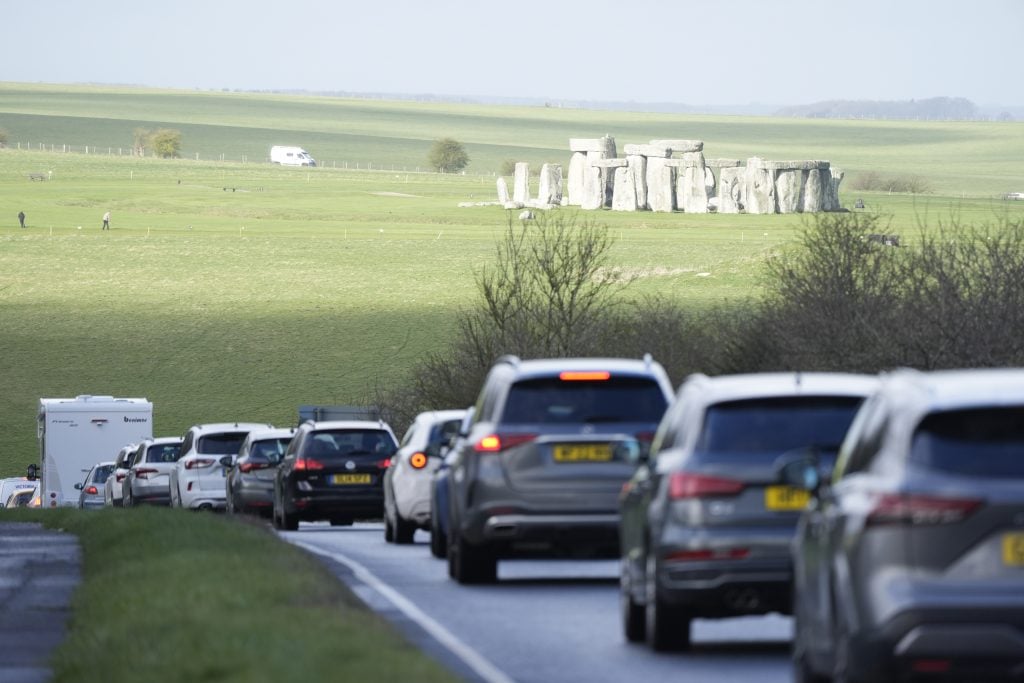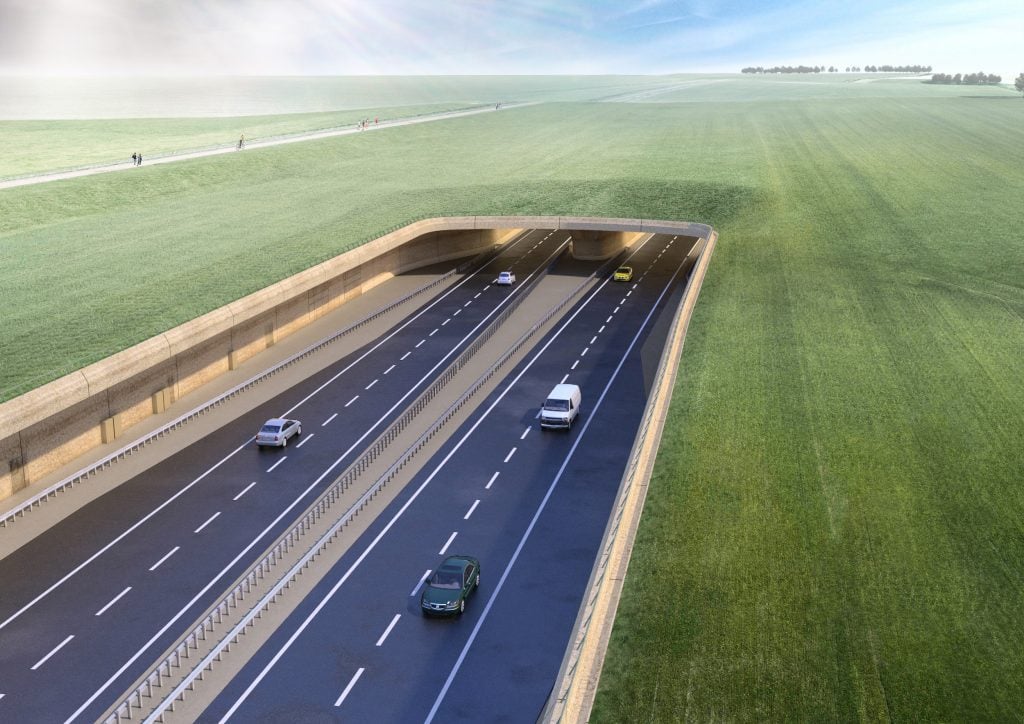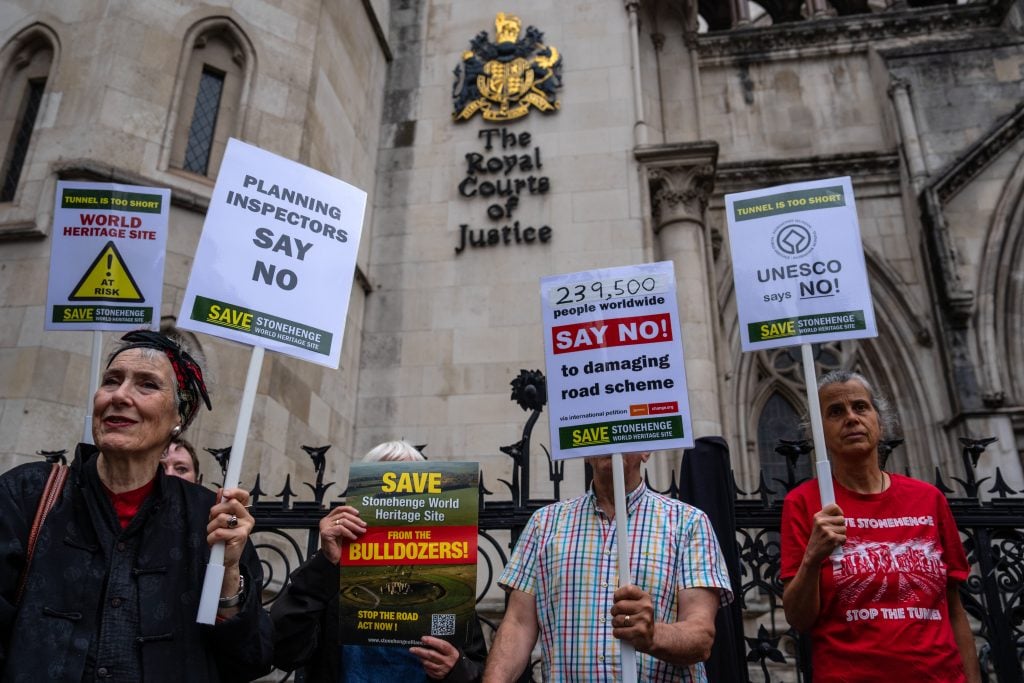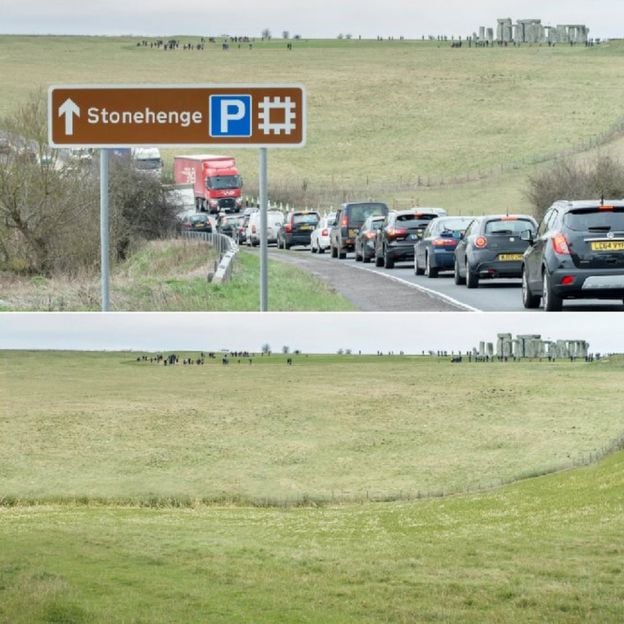Archaeology & History
U.K. Government Scraps Controversial Stonehenge Tunnel
The cancellation is being celebrated by campaigners as 'vindication' for a lengthy legal battle.

The cancellation is being celebrated by campaigners as 'vindication' for a lengthy legal battle.

Jo Lawson-Tancred

The U.K. government has scrapped plans to build a two-mile highway tunnel right by Stonehenge. The project, which was expected to cost at least £2 billion ($2.5 billion), was intended to remove unsightly traffic from the immediate surrounding area and boost the local economy. It was heavily criticized from its inception by various campaign groups.
The government agency Planning Inspectorate feared the tunnel could cause “permanent, irreversible harm” to Stonehenge. In 2021, UNESCO threatened to strip the prehistoric monument of its World Heritage Site status and place it on its “World Heritage in Danger” list if the plan goes ahead. Yet just last week, the agency decided to remove Stonehenge from its list of endangered sites, which prompted outrage among campaigners who have been lobbying against the highway addition.
The project’s cancellation was announced on July 29 by the newly appointed chancellor of the exchequer Rachel Reeves, the U.K.’s chief financial minister under the recently elected Labour government.
Speaking in the House of Commons, Reeves gave a statement summarizing the findings from a recent audit of public spending inherited from the previous Conservative government, in which she identified a £22 billion “hole.” To address this, she announced a series of spending cuts that included axing the Stonehenge tunnel, which has been deemed a “low value, unaffordable commitment” according to a paper published by the government on July 29.

A rendering of the A303 tunnel. Courtesy of National Highways.
“If we cannot afford it, we cannot do it,” she told the House of Commons. She confirmed that the new government’s transport secretary, Louise Haigh, had agreed to cancel the plan.
The Department for Transport declined to comment further.
Earlier this month, the proposed tunnel had been the subject of a three-day hearing at the Royal Courts of Justice in London, the latest attempt in a lengthy legal battle brought by the Stonehenge Alliance’s campaign group Save Stonehenge World Heritage Site. Their lawyers argued that the ministers who originally approved the plans had been “inadequately briefed” on possible alternatives. A verdict had not yet been announced.
The same group had also appealed to both the Department of Culture, Media and Sport and the Department of Transport, formally handing them a petition against the tunnel that was signed by 240,000 people. In a press release, they said they were “cautiously optimistic that the new [Labour] government will look more favorably at the arguments against the road project than their Tory predecessors.”

Activists protest outside the High Court during a hearing relating to the construction of a road tunnel near Stonehenge, on July 15, 2024 in London, England. Activist groups including Save Stonehenge World Heritage Site (SSWHS) are appealing the dismissal of their previous legal challenge against a proposal to build a tunnel as part of the A303 route near Stonehenge. The plan was initially approved in 2020 under the previous government. Photo: Carl Court/Getty Images.
The scheme was most recently approved by Conservative transport secretary Mark Harper last year, upholding the 2020 decision of his predecessor Grant Shapps, which had been overturned in 2021 by a high court.
The Stonehenge Alliance has welcomed the government’s latest decision to scrap the plans.
“This is a vindication of all the work of so many people over so many years from supporters around the world,” chair John Adams said. “National Highways’ misguided project was called out for what it was: low value and unaffordable. It was also highly damaging.”
Not everyone is pleased to see an end to the scheme, which would widen and reroute the A303 dual-carriageway, reducing congestion. Richard Clewer, leader of the local Wiltshire Council said he was “extremely dismayed and disappointed” by the decision.

A photo of Stonehenge and the current A303 highway, and a rendering of the view of the site without the traffic. Image courtesy of Highways England.
“It has taken many years of lobbying and working closely with partners, including National Highways, to bring this major infrastructure project to Wiltshire,” he said in a statement. “It is a huge blow to get to the stage when construction is ready to begin, only to have this taken away from us at this late hour.”
English Heritage, which manages Stonehenge, said in a statement that it “has been a strong supporter of the tunnel project, which would reunite the ancient landscape and allow more people to explore and enjoy this remarkable site.” It added: “Difficult decisions have to be made regarding public spending and we will seek further dialogue with the government to find a solution for one of the country’s most important and iconic sites.”